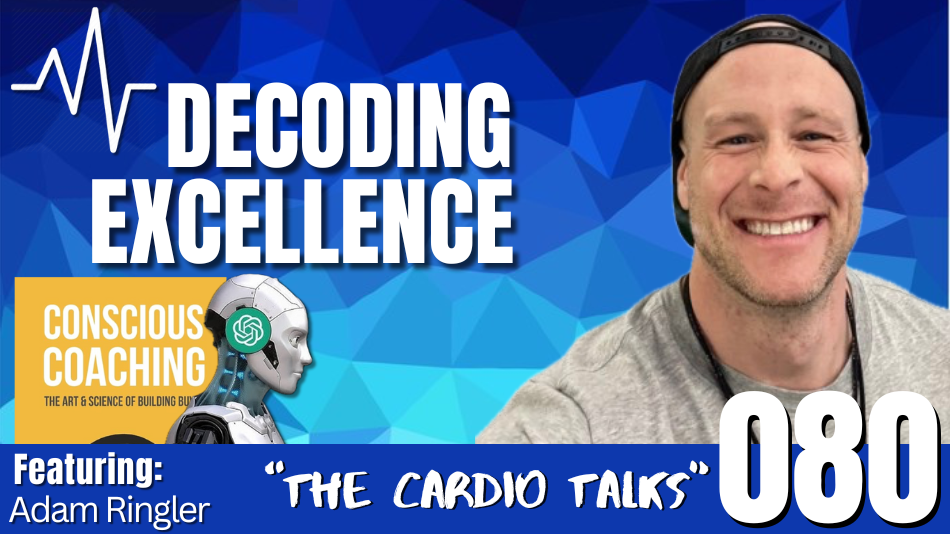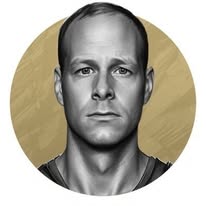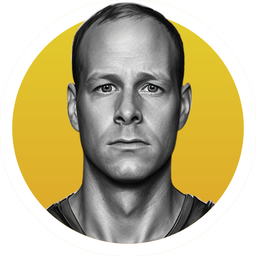#080 - Building Trust, Rethinking Recovery, and the Future of Tech in S&C
In this Decoding Excellence ‘Cardio Talk,’ I explore building trust with sport coaches, rethinking athlete recovery beyond ice baths, and the future of strength & conditioning tech. Raw, practical insights for coaches and performance pros.

In this Cardio Talk episode of the Decoding Excellence Show, I take you along for a 45-minute ruck walk where I dive into three big themes that have been on my mind lately: building trust with sport coaches, rethinking recovery in college athletics, and the future of technology in strength and conditioning.
No studio, no edits—just raw, unfiltered thoughts on the direction of our field and how we can better serve our athletes.
1️⃣ Building Trust with Sport Coaches — How we can better align with head coaches by speaking their language, framing data around outcomes, and respecting practice priorities.
2️⃣ Rethinking Recovery in College Athletics — Why recovery is more than ice baths and Normatecs, and how sleep, stress, and academics all play a critical role in athlete performance.
3️⃣ The Future of Tech in S&C — From VBT to wearables, I break down where technology is headed, what’s actually useful, and how to separate game-changers from distractions.
This 45-minute ruck walk conversation is raw, unedited, and unscripted—just me, sharing what’s on my mind in the world of performance and coaching.

Click HERE to Join our FREE Broadcast Channel over on Instagram! 📣

During the Cardio Talk
I comprehensively break down the following topics:
Building Trust with Sport Coaches
Preseason is a delicate balance—athletes are returning from summer break, practices are ramping up, and the temptation is to overload conditioning to “get them in shape.” But true preseason training goes beyond just running athletes into the ground. For women’s basketball, this phase should prioritize building durability in the joints, re-establishing movement quality, and gradually layering in power development. That means focusing on controlled strength work, mobility patterns, and foundational plyometrics that strengthen tissues before the demands of a long season hit.
At the same time, preseason is about managing practice loads. Athletes don’t need maximal weight room stress when they’re already ramping up high-intensity practices. Instead, programming should emphasize “minimum effective dose” strategies—loading athletes just enough to spark adaptation while keeping them fresh for on-court work. This way, the weight room complements practice rather than competing with it.
The Hidden Role of Microdosing Strength Work During the Season
One of the most important, yet often overlooked, roles of a strength and conditioning coach is building trust with sport coaches. At the end of the day, your expertise in sets, reps, and periodization only matters if your sport coach sees the value and buys in. Too often, strength coaches speak in a language filled with force plates, jump profiles, and heart-rate variability. While the data is powerful, the key is in translation—framing your findings in terms of performance outcomes that directly impact the head coach’s goals. If you can explain how training adjustments improve game-day readiness, reduce practice drop-off, or extend an athlete’s availability through the season, you move from “weight room person” to trusted performance partner.
Respecting practice priorities is just as critical. Sport coaches live in the world of X’s and O’s, film breakdowns, and practice execution. If you’re constantly fighting for weight room time without acknowledging the demands of practice, you risk being seen as working against—not with—the team. The real alignment happens when you approach the relationship with humility and collaboration, showing that the weight room exists to serve practice and performance, not compete with it. Trust isn’t built overnight, but through consistent communication, shared language, and framing your role around the team’s goals, you set the foundation for a true performance partnership.
Rethinking Recovery in College Athletics
Recovery in college athletics is often oversimplified and commercialized into ice baths, compression boots, and massage guns. While these tools have a place, true recovery goes much deeper. For student-athletes, the real recovery bottlenecks are rarely physiological—they’re lifestyle-driven. Sleep debt, poor nutrition, academic stress, and social pressures often outweigh any benefit gained from sitting in a tub of ice water. As strength coaches, it’s our job to educate athletes on prioritizing the basics: consistent sleep routines, fueling properly, managing stress, and carving out space for genuine downtime.
Recovery isn’t just about resetting the body—it’s about restoring the whole person. When athletes feel overwhelmed with classes, relationships, and performance demands, their nervous system is constantly in fight-or-flight mode. That chronic stress erodes their ability to adapt to training, no matter how well designed your program is. Helping athletes establish healthy habits, build structure around their schedules, and find balance between sport and life is the kind of recovery that moves the needle. In other words, the best recovery isn’t always the newest gadget—it’s often the simplest discipline.
The Future of Tech in Strength & Conditioning
As an elder millennial in the field, I’ve seen the evolution of performance technology firsthand—from simple jump mats to advanced GPS tracking and velocity-based training systems. The rapid pace of innovation is exciting, but it also creates noise. Every year, new tools hit the market promising to “revolutionize” training, yet many of them end up being distractions that collect dust on the shelf. The real question coaches need to ask isn’t, “What’s the newest tech?” but rather, “Does this tool provide actionable insights that improve decision-making?” If it doesn’t change how you train, recover, or prepare athletes, it’s just data for data’s sake.
The future of technology in S&C will be defined less by flashy gadgets and more by integration and simplicity. Coaches don’t need 20 different dashboards—they need tools that fit seamlessly into their workflow and save time rather than create it. Velocity-based training, wearables, and wellness monitoring all have real potential, but only if they help answer practical questions: How ready is this athlete to train today? Are we overloading or underloading? How can we adjust in real-time to maximize performance while minimizing risk? The best tech empowers coaches and athletes alike, but it should always serve the program, not the other way around.
Closing Thoughts
This episode is all about stepping back and challenging the way we think as strength and conditioning professionals. Building trust, redefining recovery, and filtering technology are three very different topics, but they all tie into the same mission—helping athletes perform at their best, consistently and sustainably.
If you want to hear the full, unfiltered conversation, check out this episode of the Decoding Excellence Show—part of my Cardio Talk series where I take you behind the scenes of my thoughts during long ruck walks here in Boulder, Colorado.
Thanks again for listening to the Decoding Excellence Show! I appreciate all the support growing this Sport Science, Strength & Conditioning, and High-Performance Coaching resource. If you have taken anything away from the show, please login to iTunes and navigate to Decoding Excellence page and leave us a FIVE STAR ⭐⭐⭐⭐⭐ review.
If you haven't already, you can head over to AdamRingler.com/Newsletter and sign-up for my weekly newsletter. This is a newsletter for the curious. It's chalked full of interesting articles I've read through the week, things I'm exploring and finding fascinating through my week, and a collections of thought experiences and resources I've cultivated.

If any of the material resonates with you, I'd love for you engage with me at @AdamRingler

Join the Former Athlete Society!
I built a private community exclusively for former college athletes who want expert coaching, a competitive environment, and the structure they’ve been missing. Inside, you'll get:
✅ A community discussion board to connect & share wins
✅ A full classroom with education modules on training & performance
✅ A leaderboard to reward engagement & consistency
✅ A calendar for live coaching calls & Q&A sessions
🔥Join the Former Athlete Society! 🔥 I built a private community exclusively for former college athletes who want expert coaching, a competitive environment, and the structure they’ve been missing.


